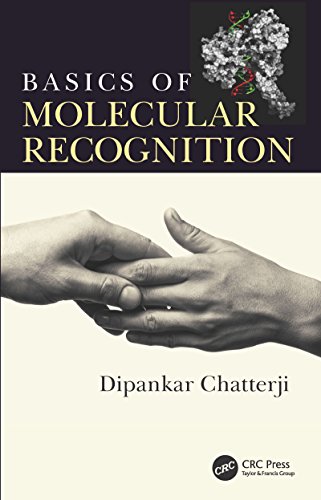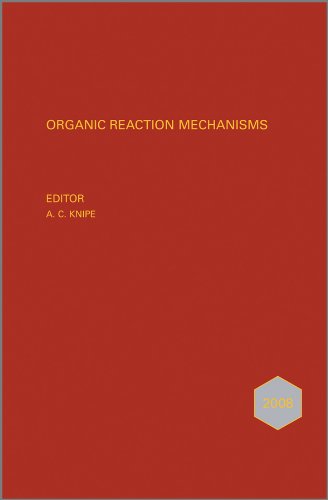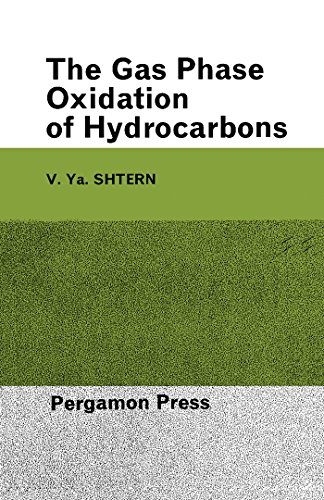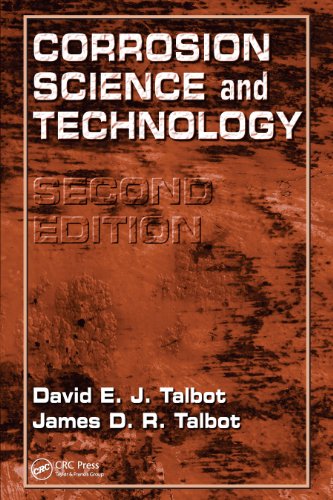
By Dipankar Chatterji
Basics of Molecular Recognition explores primary popularity ideas among monomers or macromolecules that bring about diversified organic features. according to the author’s longtime classes, the booklet is helping readers comprehend the structural points of macromolecular attractiveness and stimulates additional learn on even if molecules just like DNA or protein might be synthesized chemically.
The booklet starts with the kinds of bonds that perform the popularity and the useful teams which are in a position to forming those bonds. It then explains how smaller molecules choose their companions within the total popularity scheme, supplying examples of particular reputation styles concerning molecules except nucleic acids. The center of the publication makes a speciality of macromolecular recognition—the primary dogma of molecular biology. the writer discusses quite a few tools for learning molecular attractiveness. He additionally describes how molecules with out organic services will be arrayed or folded following sure ideas and examines the character of interactions between them.
Molecular acceptance is an unlimited sector encompassing each point of biology. This publication highlights all features of non-covalent macromolecular reputation tactics, together with DNA–protein acceptance and sugar–protein recognition.
Read or Download Basics of Molecular Recognition PDF
Best organic chemistry books
The Sodium-Hydrogen Exchanger: From Molecule to its Role in Disease
I'm super venerated and happy to give you the option to jot down a number of introductory phrases for this well timed quantity on Na + /It trade. this can be a box of research that I entered into via problem and necessity, embraced with ardour and fmally left in my quest for brand spanking new discoveries in development keep an eye on.
This quantity is the forty fourth during this classical sequence. In each quantity appropriate response mechanisms are featured in chapters entitled: response of Aldehydes and Ketones and their Derivatives Reactions of Carboxylic, Phosphoric, and Sulfonic Acids and their Derivatives Oxidation and relief Carbenes and Nitrenes Nucleophilic fragrant Substitution Electrophilic fragrant Substitution Carbocations Nucleophilic Aliphatic Substitution Carbanions and Electrophilic Aliphatic Substitution removing Reactions Addition Reactions: Polar Addition Addition Reactions: Cycloadditions Molecular Rearrangements An skilled crew of authors is compiling those studies each year, in order that the reader can depend upon a continuous caliber of choice and presentation.
Peptides: Chemistry and Biology
Completely up to date, incorporating round 25 % new fabric, Sewald/Jakubke is still the one smooth and scientifically updated complicated textbook on peptide biochemistry, distilling the data of hundreds and hundreds of guides right into a hugely readable synopsis of this diversified box. The authors clarify the large basics of peptide synthesis and constitution, systematically addressing very important households of biologically energetic peptides, and adopting an interdisciplinary process that covers program components in biotechnology, pharmaceutical technological know-how, and biomedicine.
The Gas-Phase Oxidation of Hydrocarbons
The Gas-Phase Oxidation of Hydrocarbons reports study at the mechanism of oxidation of paraffins, naphthenes, olefines, and fragrant hydrocarbons and explains intimately the phenomena and theories with major kinetic equations and graphs. This booklet first offers a examine of the advance of study at the gaseous-phase oxidation of hydrocarbons.
- The Chemistry of Plants: Perfumes, Pigments and Poisons
- Advances in Heterocyclic Chemistry: 61
- Studies in Natural Products Chemistry
- Organic Electrochemistry, Fifth Edition: Revised and Expanded
Extra info for Basics of Molecular Recognition
Sample text









